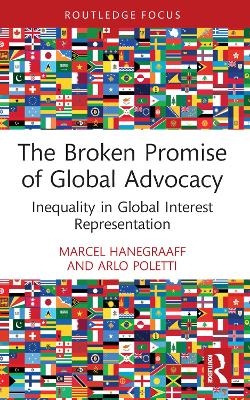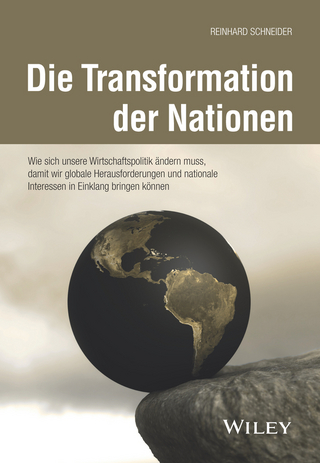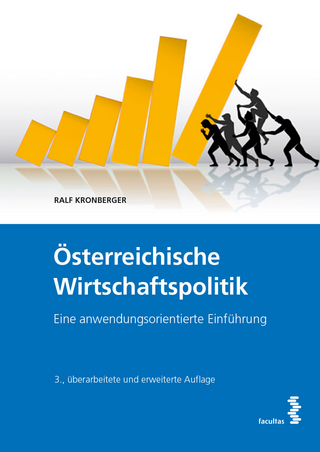
The Broken Promise of Global Advocacy
Inequality in Global Interest Representation
Seiten
2024
Routledge (Verlag)
978-1-032-16030-6 (ISBN)
Routledge (Verlag)
978-1-032-16030-6 (ISBN)
The Broken Promise of Global Advocacy addresses normative debates associated with the rise of transnational advocacy: whether global interest communities are biased in favor of wealthier countries; and whether the growth of global advocacy implies the emergence of a global civil society truly representative of global constituencies.
The Broken Promise of Global Advocacy addresses two key normative debates associated with the rise of transnational advocacy: whether global interest communities are biased in favor of wealthier countries; and whether the growth of global advocacy implies the emergence of a global civil society truly representative of global constituencies.
The authors address these important debates using original data drawn from a large-scale project which maps all organized interests participating in two international venues: the World Trade Organizations Ministerial Conferences (1995–2017) and the United Nations Climate Summits (1997–2017). They leverage this unique dataset to carry out a systematic empirical assessment of contending views on the factors driving the rise of transnational advocacy. In doing so, the book demonstrates that cross-national differences in global interest representation largely mirror states’ economic power, and that global interest communities are likely to remain dominated by organizations representing national—rather than global—interests.
This book will be of great interest to students and scholars working in comparative politics, public policy, governance, international relations, and international political economy.
The Broken Promise of Global Advocacy addresses two key normative debates associated with the rise of transnational advocacy: whether global interest communities are biased in favor of wealthier countries; and whether the growth of global advocacy implies the emergence of a global civil society truly representative of global constituencies.
The authors address these important debates using original data drawn from a large-scale project which maps all organized interests participating in two international venues: the World Trade Organizations Ministerial Conferences (1995–2017) and the United Nations Climate Summits (1997–2017). They leverage this unique dataset to carry out a systematic empirical assessment of contending views on the factors driving the rise of transnational advocacy. In doing so, the book demonstrates that cross-national differences in global interest representation largely mirror states’ economic power, and that global interest communities are likely to remain dominated by organizations representing national—rather than global—interests.
This book will be of great interest to students and scholars working in comparative politics, public policy, governance, international relations, and international political economy.
Marcel Hanegraaff is Associate Professor in the Department of Political Science at the University of Amsterdam, the Netherlands. Arlo Poletti is Associate Professor in the Department of Sociology and Social Research at the University of Trento, Italy.
Introduction, 1. The Promise of Global Governance?, 2. Does Global Governance Empower Developing Country Mobilization?, 3. Inequalities in Access to Global Policymaking?, 4. Has the Rise of Transnational Advocacy Triggered the Emergence of a Global Public Sphere?, 5. Is a Global Public Sphere Emerging Through Interactions Among Stakeholders?, Conclusion
| Erscheinungsdatum | 05.07.2022 |
|---|---|
| Reihe/Serie | Innovations in International Affairs |
| Zusatzinfo | 24 Line drawings, black and white; 24 Illustrations, black and white |
| Verlagsort | London |
| Sprache | englisch |
| Maße | 138 x 216 mm |
| Gewicht | 453 g |
| Themenwelt | Recht / Steuern ► EU / Internationales Recht |
| Sozialwissenschaften ► Politik / Verwaltung | |
| Wirtschaft ► Volkswirtschaftslehre ► Wirtschaftspolitik | |
| ISBN-10 | 1-032-16030-6 / 1032160306 |
| ISBN-13 | 978-1-032-16030-6 / 9781032160306 |
| Zustand | Neuware |
| Informationen gemäß Produktsicherheitsverordnung (GPSR) | |
| Haben Sie eine Frage zum Produkt? |
Mehr entdecken
aus dem Bereich
aus dem Bereich
Theorie und Anwendung
Buch | Hardcover (2024)
Vahlen, Franz (Verlag)
39,80 €
wie sich unsere Wirtschaftspolitik ändern muss, damit wir globale …
Buch | Hardcover (2024)
Wiley-VCH (Verlag)
39,99 €
Eine anwendungsorientierte Einführung
Buch | Softcover (2024)
Facultas (Verlag)
37,00 €


